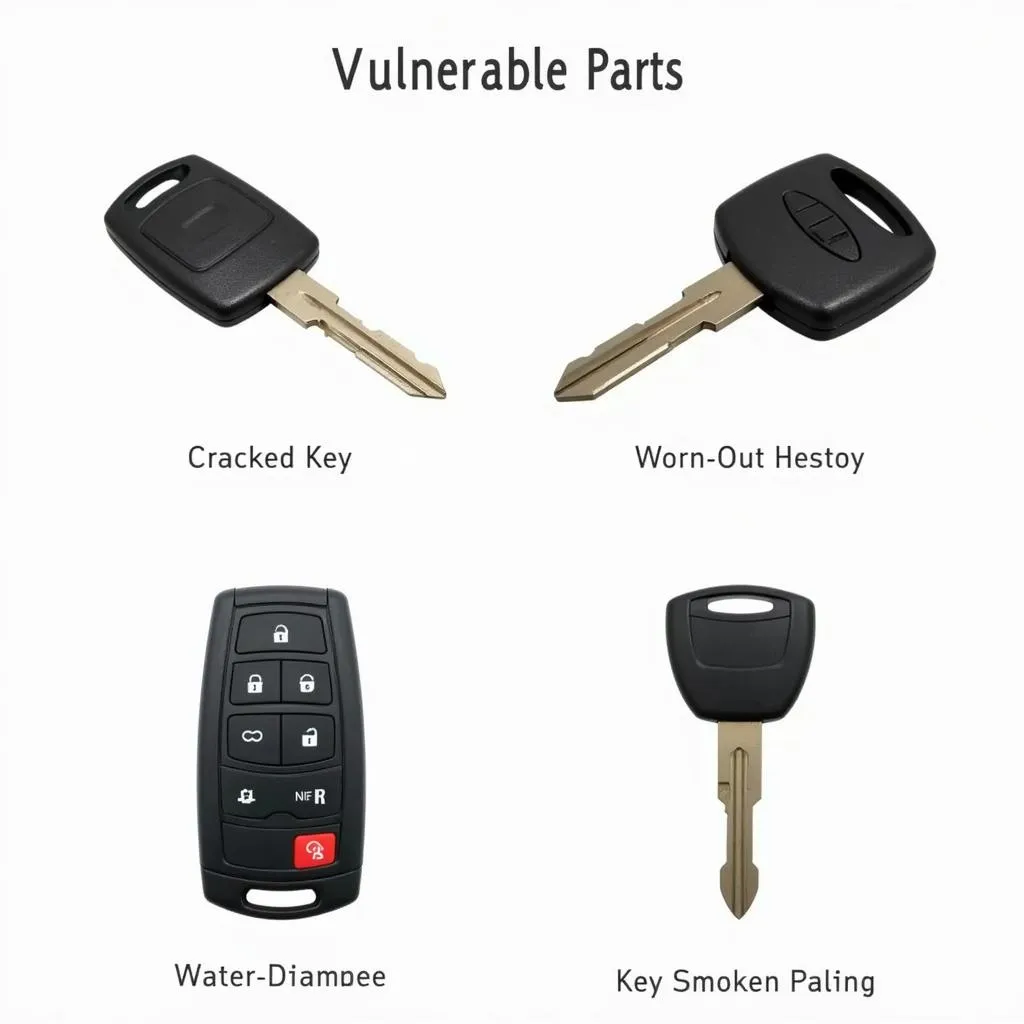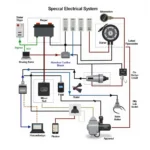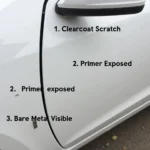Losing or breaking your car key can be incredibly frustrating and inconvenient. Whether you drive a sleek sports car or a reliable family sedan, a malfunctioning car key can bring your day to a screeching halt. Fortunately, understanding the intricacies of car key repair can help you navigate this situation with ease and get you back behind the wheel in no time.
Why Car Key Repair? Understanding the Common Culprits
Before delving into the solutions, it’s essential to understand why car keys malfunction in the first place. Here are some of the most common reasons:
-
Wear and Tear: Just like any frequently used item, car keys are susceptible to wear and tear. Over time, the physical key, the transponder chip, or the buttons on the key fob can wear out, leading to issues.
-
Physical Damage: Dropping your car keys, especially on hard surfaces, can cause internal and external damage. This can impact the key’s structure, the chip’s functionality, or the buttons’ responsiveness.
-
Battery Issues: Many modern car keys rely on batteries to power the key fob functions. A dead or dying battery can prevent you from remotely locking/unlocking your car or even starting the ignition.
-
Water Damage: Exposing your car key to water can cause corrosion and damage the delicate electronic components within.
-
Programming Errors: In some cases, car key issues can arise from programming errors during the key duplication process or after a vehicle’s electrical system repair.
Different Types of Car Keys and Their Repair Complexities
Car keys have evolved significantly over the years, from simple metal keys to sophisticated electronic devices. Here’s a look at the different types and their repair complexities:
1. Traditional Car Keys: These are the simplest type, consisting of a metal blade for the ignition and door locks. Repair usually involves cutting a new key blade from a blank.
2. Transponder Keys: Introduced in the 1990s, these keys contain a transponder chip that communicates with the vehicle’s immobilizer system for enhanced security. Repairing or replacing these keys requires specialized equipment to program the new chip to your car.
3. Remote Keyless Entry (RKE) Fobs: These fobs allow you to lock, unlock, and sometimes even start your car remotely. Repairing RKE fobs often involves replacing batteries, buttons, or reprogramming the fob to your car.
4. Smart Keys/Proximity Keys: The latest advancement in car key technology, smart keys, allows you to unlock and start your car without even taking the key out of your pocket. Repairing smart keys is the most complex and typically requires specialized tools and expertise.
When to Seek Professional Car Key Repair Services
While some car key issues, like replacing a dead battery, can be DIY projects, others require the expertise of a professional locksmith or dealership. Here’s when you should seek professional help:
-
You Need a New Transponder or Smart Key: Programming these keys requires specialized equipment and knowledge that most car owners don’t possess.
-
Your Key Is Damaged Beyond Repair: If your key is severely damaged, attempting to repair it yourself might worsen the situation.
-
You’re Uncertain About the Issue: If you’ve tried troubleshooting basic problems and your key still isn’t working correctly, it’s best to consult a professional for proper diagnosis and repair.
-
Your Car’s Immobilizer System Is Affected: Tampering with the immobilizer system can lead to more significant problems and potentially disable your vehicle entirely.
Car Key Repair Costs: What to Expect
The cost of repair car keys can vary significantly depending on several factors, including:
- Type of Car Key: Smart keys and transponder keys are more expensive to repair than traditional keys.
- Extent of Damage: A simple battery replacement will be far less costly than replacing a damaged transponder chip.
- Service Provider: Dealerships typically charge more for car key repair than specialized locksmiths.
- Location: Labor costs and availability of parts can influence the overall repair cost.
“It’s always a good idea to get quotes from multiple service providers before deciding,” advises John Smith, a seasoned automotive locksmith with over 20 years of experience. “This way, you can compare prices and ensure you get the best value for your money.”
Tips to Prevent Future Car Key Troubles
Prevention is always better than cure, and the same applies to your car keys. Here are some proactive measures to prevent future car key woes:
-
Invest in a Protective Case: A durable case can protect your key from physical damage, moisture, and dust.
-
Keep Your Keys Separate from Other Metal Objects: This prevents scratches and potential demagnetization of the transponder chip.
-
Be Mindful of Where You Place Your Keys: Avoid placing them near electronic devices that generate a strong electromagnetic field, which can interfere with the key’s chip.
-
Have a Spare Key Made: In case of loss, damage, or theft, having a spare key readily available can save you significant time, money, and stress.
Conclusion
Car key repair is an inevitable aspect of car ownership. Understanding the different key types, common issues, and when to seek professional help can save you from a major headache. By following the preventive measures outlined above and addressing problems promptly, you can ensure your car keys remain functional and reliable for miles to come. Remember, a little care and attention can go a long way in keeping your car journeys smooth and hassle-free.
FAQs
1. Can I replace my car key battery myself?
Yes, replacing the battery in most car key fobs is a relatively simple DIY task. You can usually find instructions in your car’s owner’s manual or online.
2. How do I know if my car key is damaged beyond repair?
If your key is physically broken, severely bent, or its electronic components are visibly damaged, it’s best to consult a professional for assessment.
3. How long does it take to repair a car key?
The repair time depends on the complexity of the issue. A simple battery replacement might take a few minutes, while programming a new transponder key could take an hour or more.
4. Can I get a replacement car key made at any hardware store?
While some hardware stores offer key duplication services, they might not have the equipment to program transponder or smart keys. It’s best to visit a specialized locksmith or dealership for these services.
5. How much does it cost to make a spare car key?
The cost varies depending on the key type and service provider. It’s always wise to obtain quotes from multiple places before making a decision.
Still have other questions about “repair car keys”?
You can find more information on specific car models and key types on our website.
Need immediate assistance with your car key issues? Our team of expert technicians is available 24/7 to help. Contact us via WhatsApp: +1(641)206-8880, Email: [email protected].



